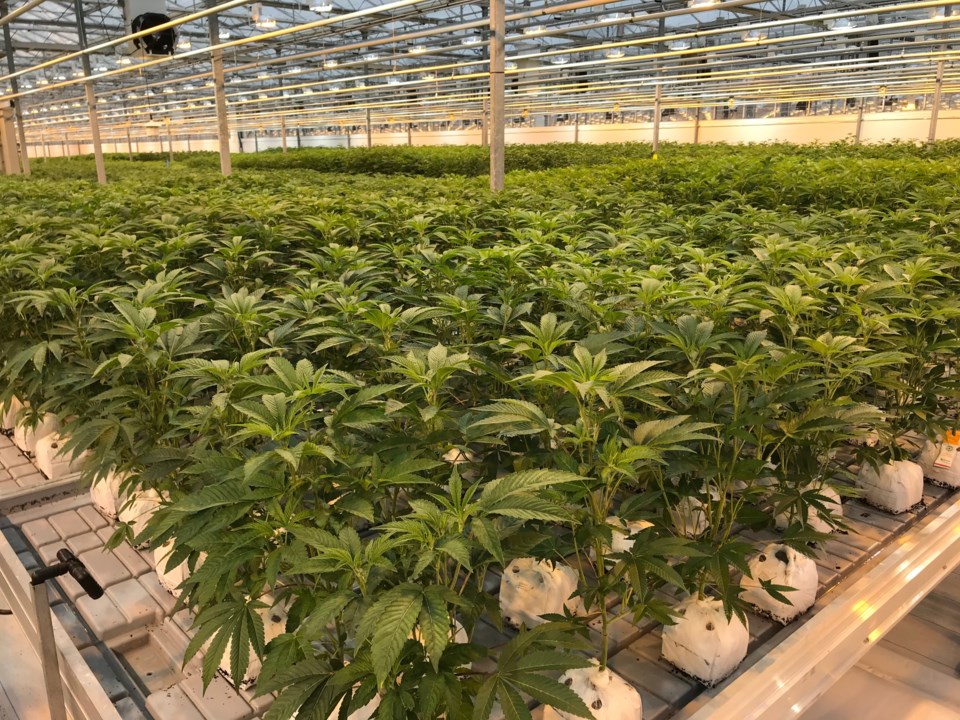A large-scale East Ladner greenhouse operation has commenced a major deal to ship product to Israel.
Pure Sunfarms, a wholly-owned subsidiary of Village Farms International Inc., this week announced it has started shipping cannabis products for the Israeli medical market under an exclusive three-year supply agreement with Israel-based Dr. Samuelov Importing and Marketing Ltd., doing business as Better Pharma.
“Commencing shipments to Israel is another milestone in our global cannabis strategy, building on our successes in Canada and Australia,” stated Michael DeGiglio, CEO, Village Farms, in a news release. “We are proud and privileged to partner exclusively with Better Pharma for the significant medical cannabis opportunity in Israel and are confident that Pure Sunfarms unique ‘Everyday Premium’ positioning, which has proven so successful in Canada and Australia, will be differentiated in the Israeli market, and well-received by patients.”
Mandesh Dosanjh, president and CEO, Pure Sunfarms, said their agreement with Better Pharma marks the first time their branded flower, including top-selling Pink Kush, makes its way to consumers internationally.
Village Farms also commented that the lack of cannabis legislative action by the United States Senate is disappointing, but does not impact Village Farms' plans to leverage its success in Canada into other cannabis markets with greater regulatory support.
In an interview with the Optimist last year, Mandesh described how his company carefully planned its growth, navigating the unchartered Canadian legal market that had many players jumping in following the legalization of cannabis.
“There’s no doubt that year-over-year the market is growing. We’ve indexed to over the four-billion dollar mark nationally and it’s no surprise that stores have continued to open up. With normalization and legalization, we’re seeing more products and there’s no doubt the industry is growing,” said Dosanjh.
Located on 80th Street, Pure Sunfarms already has 1.1 million square feet in its greenhouse operation, having the capacity to produce 75,000 to 80,000 kg of dried flower annually for the Canadian recreational market.
Pure Sunfarms has also been planning to convert a second 1.1 million square foot adjacent greenhouse for production, and half of that facility is already in full operation.
Because much of the processing is taking place in the first greenhouse, the second greenhouse will have an even bigger area to grow at about 85,000 to 90,000 kg, once fully converted.
Meanwhile, a Canadian-based cannabis company that for a while also had a large-scale greenhouse operation in East Ladner announced this week it has closed a deal that will see it completely exit the retail scene across the country.
Canopy Growth has a deal with OEG Retail Cannabis and 420 Investments Ltd. that will see Canopy divest itself of its 23 Tweed and Tokyo Smoke retail stores across Canada.
The divestiture of its Canadian retail business marks an important step forward on the company’s path to profitability and furthers its focus on generating revenue growth in the Canadian market, said David Klein, CEO, Canopy Growth, in a news release.
In 2020, as part of a series of cut-cutting moves, Canopy abruptly shut down its 1.7-million-square-foot greenhouse facility on Hornby Drive, which was to be one of the world’s largest indoor cannabis grow operations.
Canopy later confirmed in a regulatory filing with the U.S. Securities and Exchange Commission that the company sold its vacant production facility in Delta, as well as another in Aldergrove, for a combined CND$40.6 million, which was a major loss.
Canopy Growth had spent millions to retrofit the greenhouses and later millions more to acquire the remaining interest that it didn’t own in a joint venture called BC Tweed.



